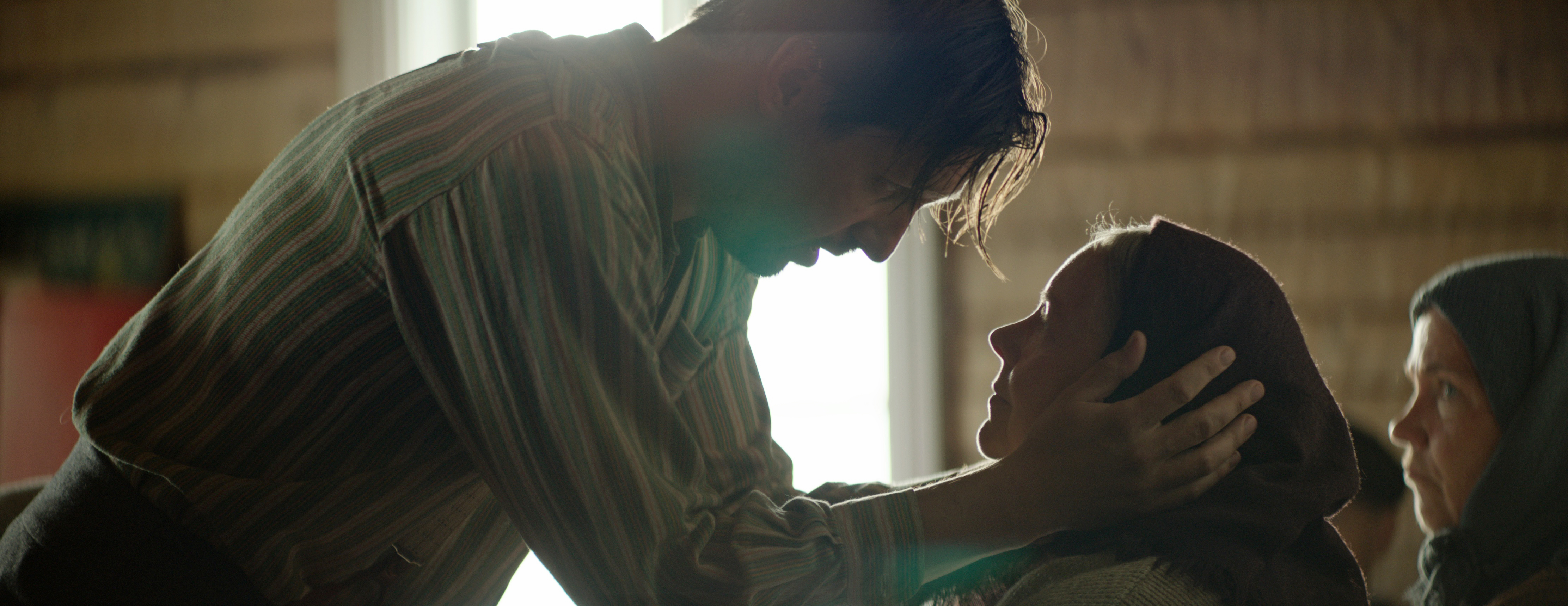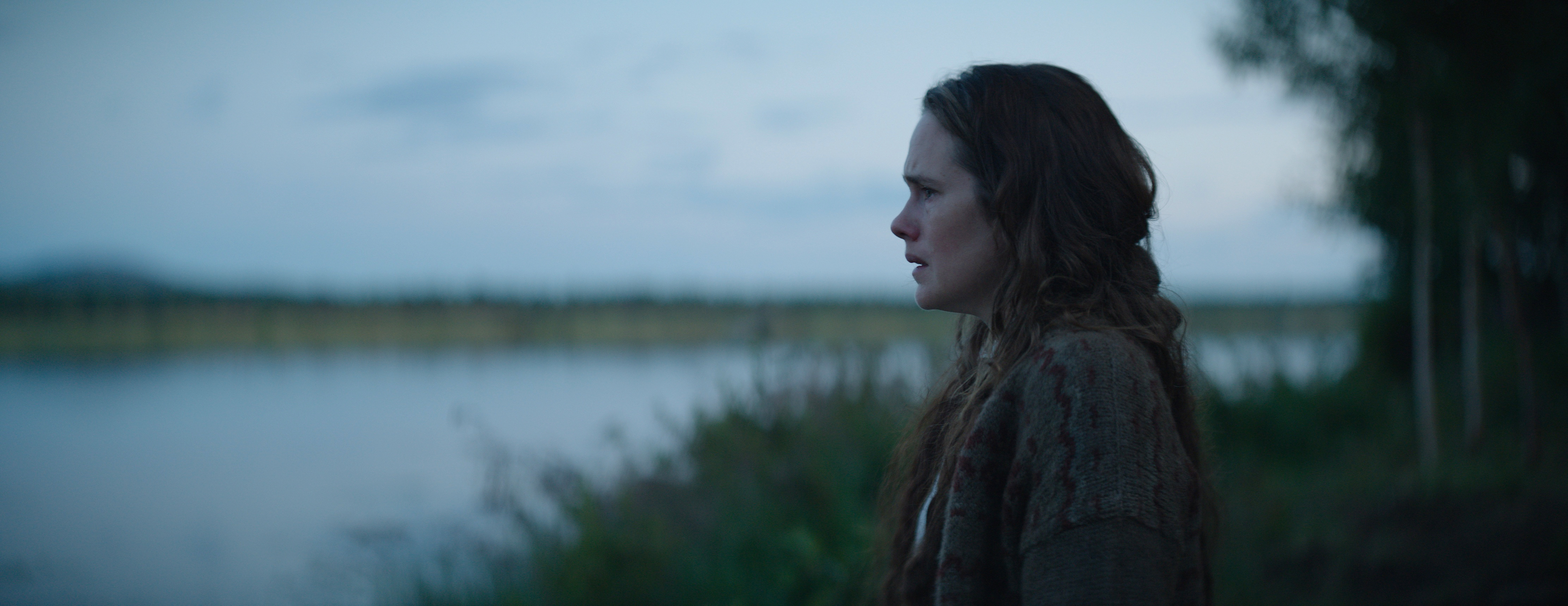Raptures - SIFF [2025]


Film
This film was viewed at the 51st Seattle International Film Festival
Suppose your husband was descending deeper into religious dogmatism, eventually blowing down the doors into fanaticism, while leading a sectarian cult in your small village. Would you stay as a bystander? Or would you run as fast as you can? Jon Blåhed poses this scenario with Rakel (Jessica Grabowsky) as the focal point in Raptures, a historical drama about the rise of the Korpela movement, which was known as an increasingly radical religious cult. Told from Rakel’s perspective, we watch through her wary gaze as paranoia quietly festers in her husband Teodor (Jakob Öhrman)—and soon, in the village itself. Once the visiting preacher Toivo Korpela (Samuli Niittymäki), after spreading his word and being threatened by the mainstream Church, leaves, Teodor believes he is chosen by God to lead in Korpela's absence. Taking up the mantle and pushing forth the burgeoning Korpela movement. We, through Rakel's eyes, begin to slowly fail to recognize Teodor and the other villagers who succumb to the cult's calls of apocalyptic prophecies, isolationism, and justification of extra-marital sex. What should’ve been a terrifying glimpse into the poisonous words of men grasping for power is ultimately reduced to surface-level exposition that lacks the teeth to chew what it bites off.
Blåhed's setup of Raptures is among one of the most intriguing of a film I've ever seen, becoming the first film to primarily feature the minority language of Meänkali. But the film also uses Swedish and Finnish, distinguishing the languages through different colored subtitles, which at times can be overly demanding. However, the subtlety of engaging in multiple languages, especially given the politics of 20th century Sweden, where Meankali speakers were seen as lowly peasants by Swedish speakers, who were conversely seen as "fancy gentlemen from Uppsala" by the villagers-along with interpretations or translations of the Bible resulting in religious fanaticism is beyond interesting. It's a slick piece of filmmaking that immediately establishes intricate layers to the story before a single line of dialogue is spoken.
Combined with the riveting performance of Grabowsky and the arresting camera-work from cinematographer Mimmo Hildén, highlighting the isolated beauty of the village or the deliriously bright backlighting of the prayer house (another great cinematic flair for religious themes), Raptures possesses all of the groundwork for a tremendous viewing experience. One fraught with paranoia, betrayal, and the battle between morality and sectarian actions.
Unfortunately, just like the logs piling up in the river outside the village of Meänmaa, Raptures suffers from having too much and too little flow. At the same time, Rakel is the perfect focal point for the film, her husband's-and his cult followers-bear little to no depth. The construction of the dogmatic cult is swift and devoid of appropriate scaffolding, demanding the viewer to fill in the gaps. Power-hungry men don’t need elaborate backstories—but they need something. Teodor and his right hand man Hannes (Sampo Sarkola) creating an echo chamber of beliefs in the village as if it were a black hole consuming everything and everyone, could've been emphasized to a greater degree. When a tragedy befalls a young girl in the final act of the film, its context being framed outside of the camera provides more confusion than it does suspense. Putting the cult on the verge of parody, undermining its intended menace.
Blähed's attachment to the material, being raised in the region, is evident. The camera has a reverence for the natural beauty, and the nuances of the language are terrific ways to pay homage to the past and reach to communicate the story as a warning. In some ways, Raptures has bone-chilling parallels to the growing religious extremism throughout the world, as an unexplainable spread of translations and interpretations taken as fact. But without the characters to build upon the context, Raptures ends up as a haunting whisper instead of a prophetic scream.
Froth
You could go a number of different ways here in terms of beer pairing, and you could also go a number of different ways on enjoying the film more/less than I did. So in order to relinquish some brain power to devote to reading subtitles and picking up on the subtleties of Raptures linguistics I think a nice and easy lager is the ideal pairing here. Stoup Brewing's German-Style Spring Lager is a simple yet impeccably brewed beverage that can satisfy your every craving, yet is light and crisp enough to not demand too much. Filled with toasty and caramel accented flavors, this lager is a supremely easy and refreshing drink even with its towering 6.8% ABV. Seems like a feature more than a bug if ya know what I mean.
Nevertheless, it is an ideal beer for warmer weather, enjoying movies, and being extra wary of that new preacher that comes to town speaking about how a crystal ark is going to drop down from the heavens into the nearby lake.








![Spermageddon - SIFF [2025]](https://images.ctfassets.net/f4exvld7r7c2/LT4GZouIhmZswETEv3OWd/4b25a56d45b3cd22bc98b83c44f46a16/Spermageddon.jpg?w=400&h=168&fl=progressive&q=50&fm=jpg)
![Bitter Gold - SIFF [2025]](https://images.ctfassets.net/f4exvld7r7c2/xmBGKXGahRzBI3zsAeWmc/a81a580dafe10163d284c841994b07d7/BitterGold.png?w=400&h=168&q=50&fm=png)
![Bitter Gold - SIFF [2025]](https://images.ctfassets.net/f4exvld7r7c2/6NRL3MxwA9OYcEXrQfmrNc/58895d42bb54af92f31217f232e5b3a6/Balconettes.jpg?w=400&h=200&fl=progressive&q=50&fm=jpg)